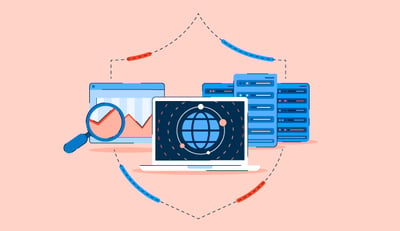
Intellectual property (IP) has become a fundamental pillar of innovation and economic growth. Many organizations worldwide use IP management software to centralize all intellectual property rights, trademarks, and patents in a single repository, enabling easy monitoring and tracking.
The statistics and data surrounding IP offer insight into the health of industries, trends in innovation, and the dynamics of international competition. Intellectual property statistics highlight IP's significance in the modern world and delve into the latest landscape shifts.
From the surge of patent filings to the role of trademarks in branding, we’re going to present a comprehensive view of IP's critical role in fueling creativity, encouraging invention, and shaping the economy.
Intellectual property represents a broad category of property created through an individual or group's mental effort and creativity. It includes inventions, works of art, designs, symbols, names, and images used in commerce.
Intellectual properties comprise patents, copyrights, trademarks, and trade secrets. Let's dive into exciting trends in IP to understand where it's heading in the foreseeable future.
Intellectual property theft is a serious and growing issue in which individuals or entities infringe on the IP rights of others. They copy, steal, or otherwise unlawfully use the creators’ patented inventions, copyrighted works, trademarks, or trade secrets without consent.
Intellectual property theft profoundly affects businesses, industries, and economies. It results in significant financial losses for the victims and can damage a company’s brand reputation.
Keep reading for some statistics that unveil the state of intellectual property theft.
Intellectual property theft can stifle innovation and economic growth. Businesses need robust internal protocols for protecting their work. These protocols include implementing strict access controls and using non-disclosure agreements.
IP litigation involves legal disputes over the use, ownership, or infringement of IP rights, including patents, copyrights, trademarks, and trade secrets. IP litigation can be a high-stakes process, given the value often tied to intellectual property rights. It requires specialized legal knowledge, not only of IP law but also of the specific type of IP involved and the industry in which the dispute has arisen.
Let's look at the state of IP litigation through a statistical lens.
Because intellectual property is often protected by different countries' laws, IP litigation can also have a significant international dimension. As such, it may involve navigating different legal systems, international treaties, and conventions, especially in cases where infringement occurs across borders.
Patent owners can exclude others from making, selling, using, or importing an invention for a set time period in exchange for publicly disclosing information.
Let's discover the trends in patent filing and management through these stats.
In most countries, patent rights fall under civil law, and the patent holder must sue someone infringing the patent to enforce their rights.
A trademark is a distinctive symbol, logo, or word representing a company or product. It's an essential aspect of intellectual property, as well as branding and marketing strategies.
Trademarks identify and distinguish a company's goods or services from those of other entities. They prevent customer confusion in the marketplace by clearly indicating the sources.
Industrial design is a specific category of IP that refers to a product's aesthetic or ornamental aspect. Unlike patents, which cover the functional aspects of products, or trademarks that protect brand identifiers, industrial design protection focuses on the visual appeal of a product.
Let's look at some notable statistics to learn more about industrial design's current state.
Our deep dive into IP statistics reveals intriguing trends, offering insight into national and international policies, economic health, technological dominance, and innovation capacities. However, these statistics also illuminate the obstacles, such as IP theft and costly litigation, underscoring the importance of robust laws, vigilant enforcement, and global cooperation in safeguarding IP rights.
But there’s no reason to believe that we can’t rise to the occasion and face down those challenges. From patent filings to trademark registrations and from copyright claims to industrial design protections, each facet of intellectual property conveys a story of human ingenuity and entrepreneurial spirit.
Learn more about intellectual property and understand why you should protect yours.
Sagar Joshi is a former content marketing specialist at G2 in India. He is an engineer with a keen interest in data analytics and cybersecurity. He writes about topics related to them. You can find him reading books, learning a new language, or playing pool in his free time.
Global trade supports the economic standing of developing and established countries. It...
 by Sagar Joshi
by Sagar Joshi
A domain name system (DNS) helps your computer find websites you want to visit. It does this...
 by Sagar Joshi
by Sagar Joshi
Swift is fast, that was easy.
 by Bridget Poetker
by Bridget Poetker
Global trade supports the economic standing of developing and established countries. It...
 by Sagar Joshi
by Sagar Joshi
A domain name system (DNS) helps your computer find websites you want to visit. It does this...
 by Sagar Joshi
by Sagar Joshi


